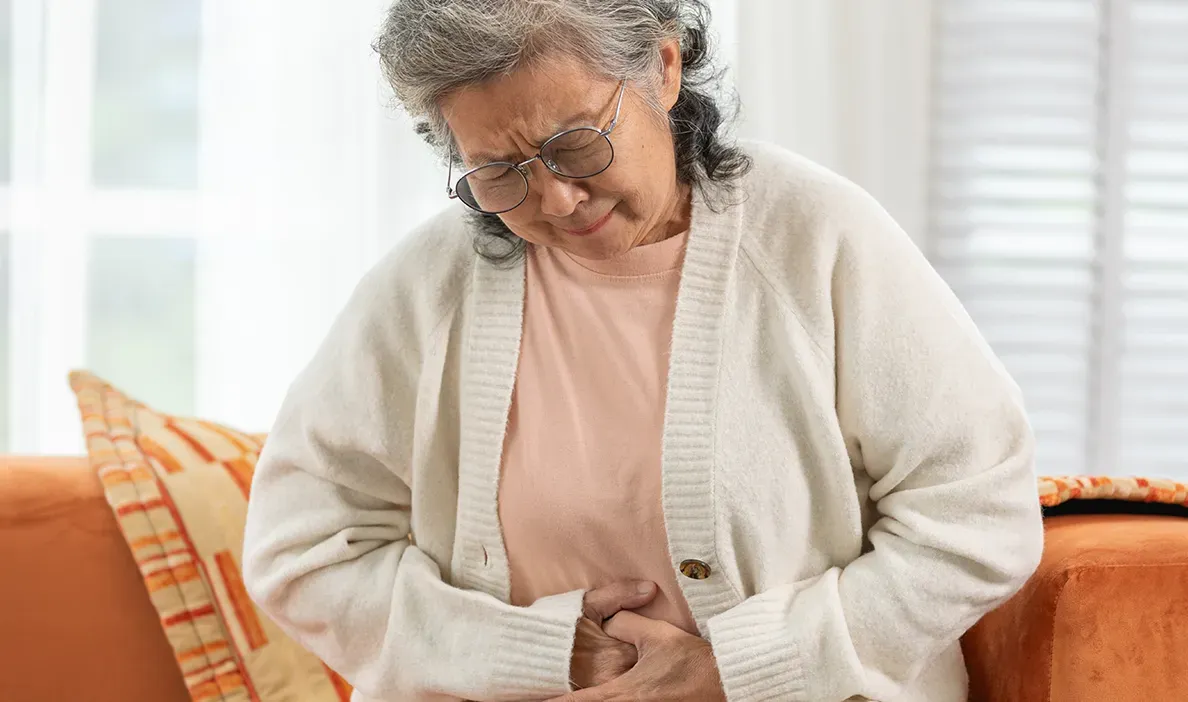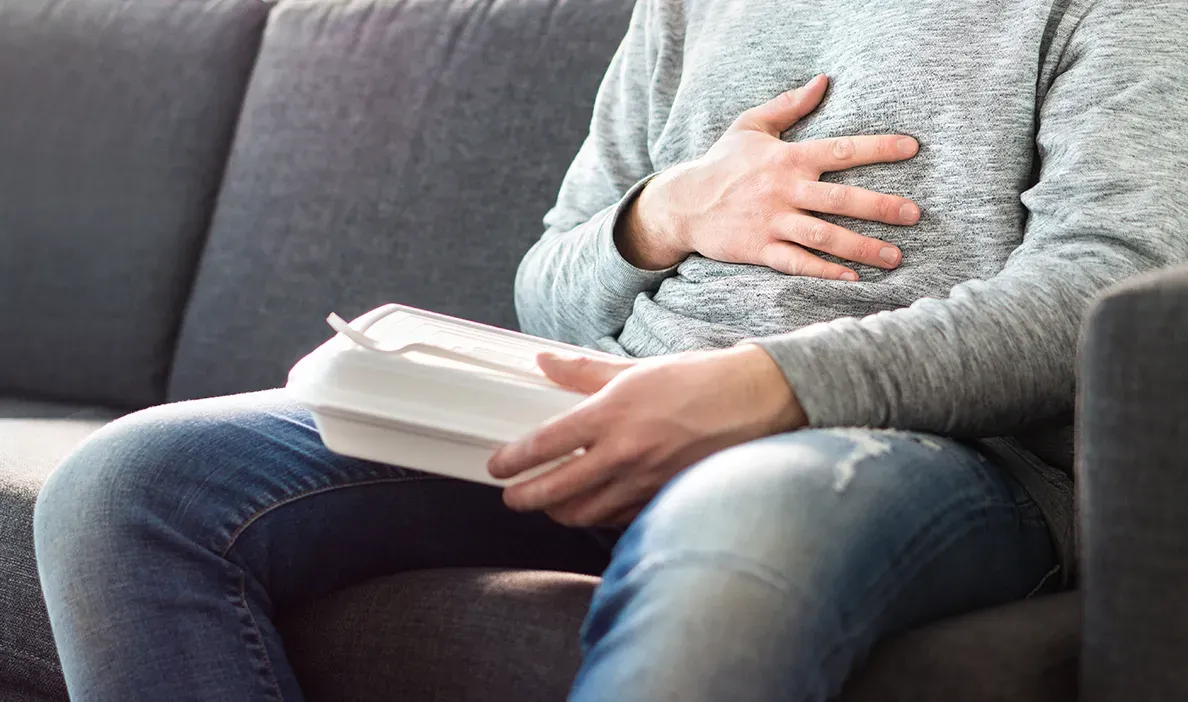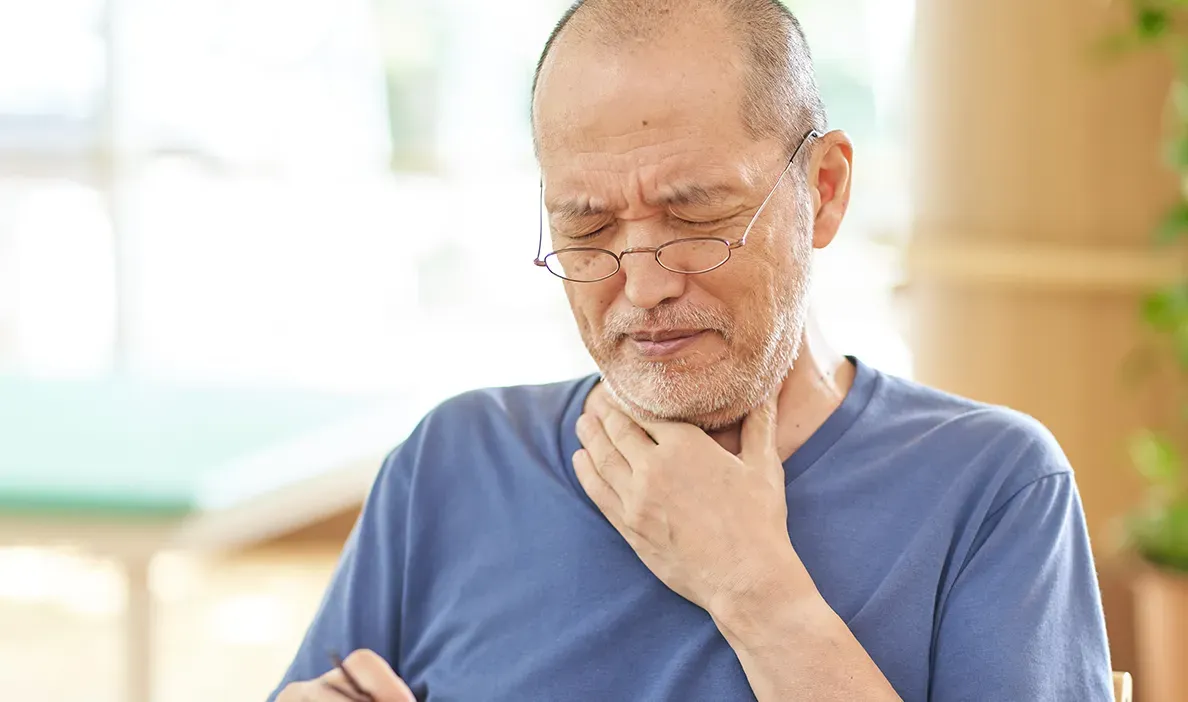If your poo is looser or more watery than usual, or you’re pooing more often, then you may have diarrhoea (sometimes spelt as ‘diarrhea’).1 For some people it’s a symptom of the cancer itself. For others it may be a side effect of cancer treatment.2
There are different grades of diarrhoea from mild to severe. Severe is classed as 4-6 cases of diarrhoea a day. If you have severe diarrhoea, you should contact your healthcare team as soon as possible.3
If left untreated, diarrhoea can lead to dehydration. This means the body has lost too much water and essential salts and sugars, which are important for normal functioning of our bodies.4
The good news is that mild diarrhoea sometimes goes away without treatment. There are some things you can do to manage it yourself.3 See below for a few useful tips for coping with diarrhoea.
Coping with diarrhoea:3,5
- Make sure you drink plenty of liquid to replace what you have lost (at least 2 litres or 3.5 pints a day recommended) – go for clear liquids, such as water, juice, and broth (avoid milky drinks)
- Avoid things that dehydrate you, like alcohol and coffee
- Eat around 6-8 small meals made from light foods, instead of larger meals at mealtimes
- Eat your food more slowly
- Eat less fibre – you may wish to have less cereals, fruits and vegetables
- Avoid foods that are greasy, fatty, spicy or contain dairy
- Try taking probiotics – these can be found in some yoghurts and supplements
If you have diarrhoea and it’s getting in the way of you leaving the house, then reach out to Macmillan. They may be able to issue you with a Macmillan Toilet Card, which you can show to people if you need to use a toilet quickly when you’re out of the house.3
Remember, it’s important to tell your doctor about any new or worsening symptoms you have or any side effects of treatment you are experiencing. If these tips don’t help with your diarrhoea, your doctor may prescribe medicine to offer relief.4
References
- National Health Service. Diarrhoea. Available from: https://www.nhsinform.scot/illnesses-and-conditions/stomach-liver-and-gastrointestinal-tract/diarrhoea [Accessed June 2025]
- Cancer Research UK. Causes of diarrhoea. Available from: https://www.cancerresearchuk.org/about-cancer/coping/physically/bowel-problems/types/diarrhoea/causes [Accessed June 2025]
- Macmillan. Diarrhoea. Available from: https://www.macmillan.org.uk/_images/diarrhoea_tcm9-321188.pdf [Accessed June 2025]
- Cancer Research UK. Treating diarrhoea. Available from: https://www.cancerresearchuk.org/about-cancer/coping/physically/bowel-problems/types/diarrhoea/treating-diarrhoea [Accessed June 2025].
- Mayo Clinic. Diarrhea: cancer-related causes and how to cope. Available from: https://www.mayoclinic.org/diseases-conditions/cancer/in-depth/diarrhea/art-20044799 [Accessed June 2025].






